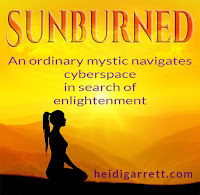- Christian: Father—Son—Holy Ghost
- Hindu: Brahman-Maya-Atma
- Nondual: Absolute—Relative—Immanent
For the uninitiated, this “spiritual speak” makes things more laborious and/or out-of-the-realm of ordinary experience than they actually are. However, once you’ve been minimally exposed to “spiritual language”, you might just discover that you’ve had numerous spiritual experiences—without any effort at all—throughout your life, or perhaps even had a “spiritual awakening” yourself!
That blissful moment at the peak of the mountain you hiked five days through the wilderness to reach, the precise moment you fell in love with your soul mate, that afternoon you walked past the pet store and that gray tabby kitten stopped You with an extended paw—asking you to adopt it, the rush of your heart at the season’s first snowfall; these moments where we feel intensely connected to the world we inhabit and/or THAT THING that created it are spiritual experiences, awakenings, if you will.
Now, “awakening” is one of those spiritual terms that can point to many different things.
- awakening: a multiplicity of fleeting yet inspiring direct encounters with THAT THING: answered prayers, experiences of unbounded love, flashes of insight, moments of clarity, prophetic dreams and/or visions
- Awakening: a shift in consciousness that usually manifests as a significant alteration in the trajectory of one’s life
- AWAKENING: the ego-ic identity/separate self dissolves into the infinite once and for all
Whew!
Not unusual for us as a species, we’ve managed to take something quite natural, something inherent within us all, and overlay it with belief systems/complexities/and jargon that—well, makes the skin on the back of my ears burn!—pass the aloe vera gel, please.
Commandments, laws, instructions, rituals, scriptures; we’ve created a great wall of words to disconnect the average person from their most numinous experiences. We hand over the right to determine the meaning of our lives and our innermost realities to religious hierarchies (bureaucracies?) and/or spiritual masters—or reject meaning altogether.
Does it have to be so complicated? So complicated that even to talk about it, we have to learn a veritable second or third language? The thing is: once you really start listening to people from different religions and spiritual traditions talk, you realize they’re often discussing, if not the exact same things, then at least very similar things: The creation of the cosmos, the individual experience of the divine, and the relationship between the two.
Okay, in simplest terms, hehe.
But simple isn’t necessarily bad.
If you start with simple, its easy to add on whatever froufrou stuff appeals to you.
Now I’ll be the first to admit that these topics are fascinating, and perhaps the most vital to our evolution; so I’m not knocking anyone who is driven to invest their energy and life into sorting out all this language. That’s an honorable and worthy path.
I’m just not convinced the froufrou stuff is absolutely necessary to the experience.
On Friday, I’ll introduce you to Kiran, Mystic Girl in the City, who has a gift for translating spiritual speak into everyday language.







